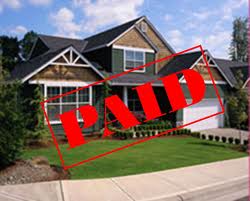Paying your mortgage early can be relatively pain free, but, before getting started, you need to take care of some basic prerequisites. I recommend that you:
- Pay off all other debt. Why? Because getting rid of other debt will free up their cash flow to allow you to attack that mortgage with gusto.
- Save at least a six month emergency fund. Why? Because emergencies WILL happen, and money tied up in their house cannot not be easily accessed to pay for those emergencies.
- Be investing sufficiently for retirement. Why? Because you only have one shot at retirement. You should ask yourself this question, “If my retirement account was already sufficient, would I raid it in order to pay my house off early?” Of course not, but neglecting your retirement account in order to pay your mortgage early is doing the same thing.
OK? Ready to get started on that mortgage? Let’s help a fictional couple get their mortgage paid early and easily.
Jack and Liz have a 30 year fixed rate mortgage on a $200,000 loan. They are paying 5.5% APR and are motivated to pay that mortgage off early. The following tips will get the job done.
1. Make a payment every two weeks.
This strategy works especially well for those who are either paid weekly or bi-weekly because they can synchronize their mortgage payments to their pay schedule instead of the calendar. This strategy works because a payment every two weeks, in a year’s time, will total 26 payments, or the equivalent of 13 monthly payments– one extra payment per year. If Paul and Shirley choose this option, their 30 year mortgage will be gone in slightly less than 25 years.
Note: many banks, because they are structured to process payments monthly, will not be able to accommodate the bi-weekly payment schedule. However, a diligent borrower can do this on his own by multiplying whatever he is paying now by 1.083 (or 13/12) in order to pay the equivalent of 13 payments a year.
2. Change their W-4 forms, get less refund, and pay extra on their mortgage.
Jack and Liz, who are receiving a $3,000 refund every year, could claim more exemptions on their W-4 forms in order to bump up their take home pay and receive a smaller refund. If they were to plan for a $600 refund, they would have an extra $200 to add to their mortgage payment each month, lowering their payoff from 30 years to only 21 years.
3. Refinance and keep paying the same payment.
If Jack and Liz could refinance their loan from 5.5% to 4.5%, and keep making the same payments, they would knock the mortgage out six years sooner.
4. Utilize pay raises.
Jack and Liz’s current house payment is 25% of their take home pay. If they decided to continue to pay that same 25% as they receive future pay raises, they would be making incrementally bigger payments – a relatively pain free strategy. Assuming these two get a 4% annual pay raise, this tactic would allow them to pay that 30 year mortgage off in slightly over 17 years.
5. Do all four.
What if Jack and Liz decided to use all of our easy tips? It would look something like this:
- By changing their W-4 forms, their monthly payment would bump from $1135.61 to $1335.61.
- By paying bi-weekly, their equivalent monthly payment would become $1446.91 ($1335.61 x 1.08333).
- They will refinance to 4.5% with $1000 closing costs, and keep their payment the same ($1446.91).
- They will increase their payment by 25% of whatever ensuing pay raises they receive. We will assume pay raises of 4% annually.
Put it all together, and our happy couple will have paid their 30 year mortgage off in … drum roll please … 12 years and 3 months.
Wasn’t that easy?
Readers: Have you used any of these tips? How did they work? Do you have any other tips for paying your mortgage early?
This is a modified version of a post I wrote for ChristianPF.



Leave a Reply